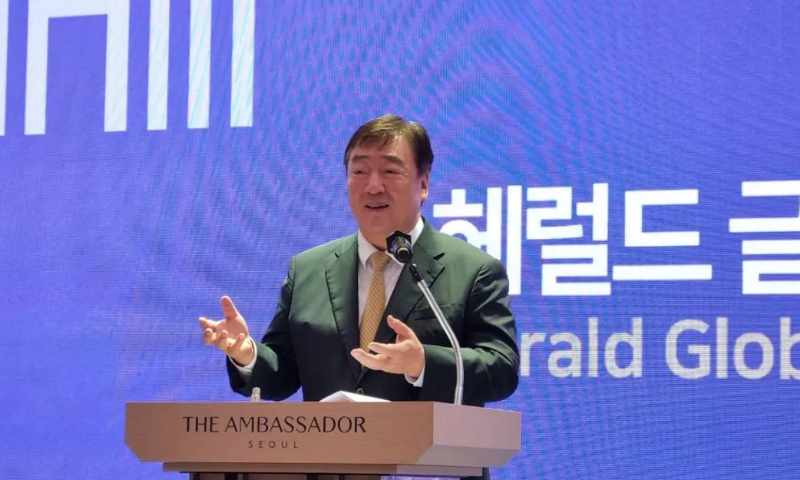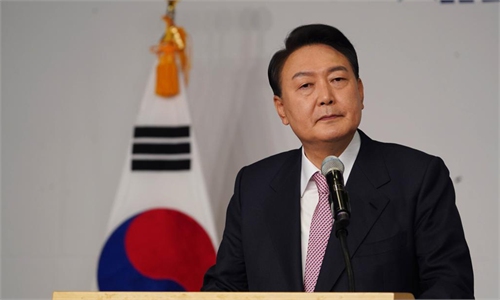Advocacy for decoupling from China is decoupling from future opportunities: Chinese Ambassador to South Korea

Chinese Ambassador to South Korea, Xing Haiming, delivers a speech at the Global Business Forum hosted by The Korea Herald on July 6, 2022. Photo: Chinese Embassy in the Republic of Korea
It is impossible for China and South Korea to decouple from each other given their close economic ties. Advocacy for decoupling from China only means decoupling from future opportunities, said the Chinese Ambassador to South Korea, Xing Haiming.
Xing made such remarks on Wednesday at the Global Business Forum hosted by The Korea Herald, South Korea's largest English-language daily, quoting data on China-South Korea trade last year which is approximately equal to the sum of the trade between South Korea and the US, Japan and Europe.
"The China-South Korea trade has increased more than 50 times over the past 30 years. China has been South Korea's largest trade partner for 18 consecutive years and South Korea is expected to overtake Japan as China's second top trade partner this year," Xing said.
Xing said that China-South Korea relations face external interference, warning about the rising voices in South Korea saying that it should leave China and find a new way out as the dividend period for exports to China is over.
The political, economic and cultural cooperation between China and South Korea have been affected under circumstances where the US spares no efforts to rope into regional countries against China for its own absolute hegemony, Xing noted.
Xing pointed out that such argument is equal to preaching decoupling from China under the influence of the US. However, whether South Korea should decouple from China only depends on whether or not it would bring benefits to the country.
Xing also explained China's "dual circulation" development pattern, saying that it does not mean shutting its door to the outside but making the best of China's domestic demand given its much lower share of domestic consumption in GDP, compared with the US, Japan, South Korea, and even India.
As for the concerns over China's dynamic Zero-COVID policy, Xing said that China has largely eased its visa, border entry and quarantine policies and the Communist Party of China will hold the 20th National Congress in the second half of the year to chart the next phase of the country's development.


